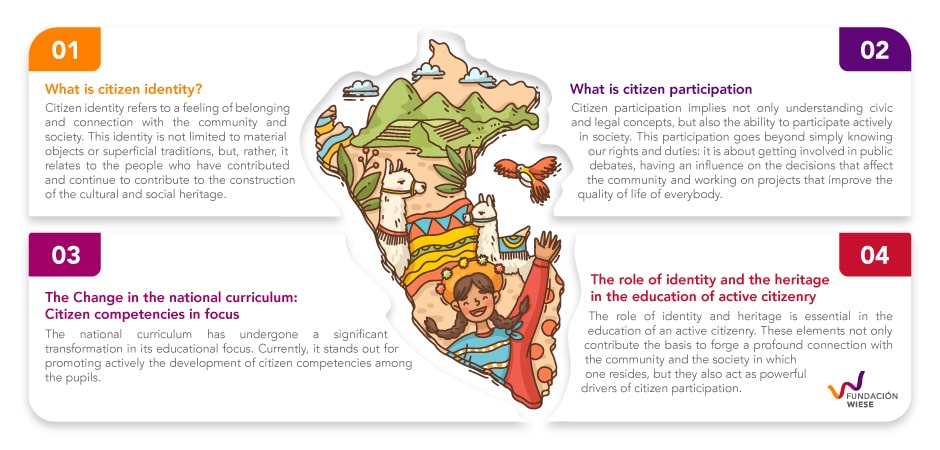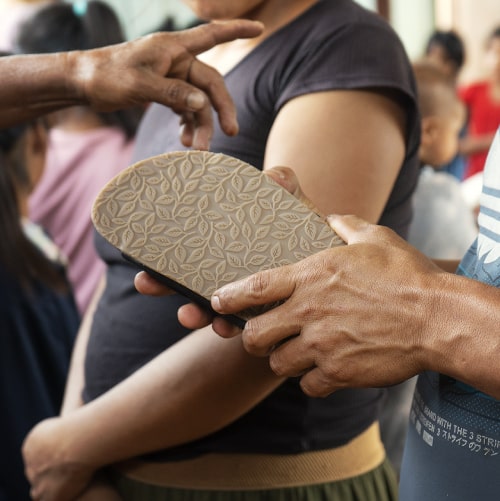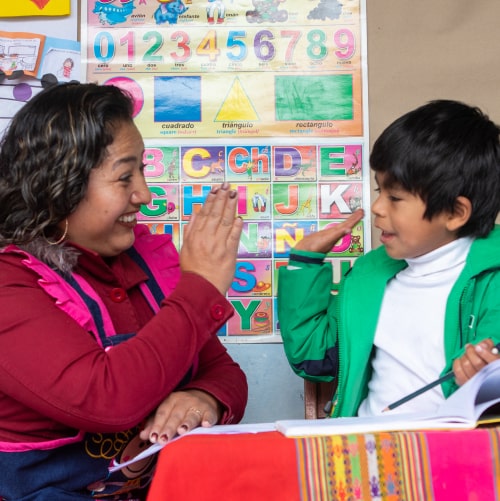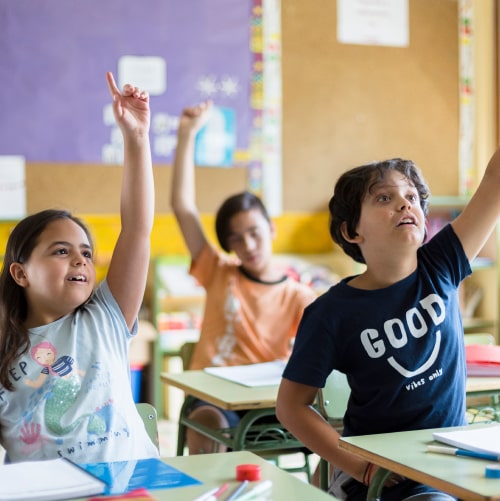Season 5, “Identity, heritage and citizenry”, of the Wiese Foundation’s Educational Dialogues series aims to provide a pedagogical reflection on the construction of collective identity, the sense of belonging and the recognition of the common heritage. All of this is done in order to strengthen our bonds as Peruvians and promote respect for our multicultural diversity.
The first chapter of this new installment has as a guest Lilia Calmet, an educator specialized in Curriculum and Director of Initial Teacher Training, ITS. During this conversation, fundamental issues were addressed, such as “what is citizen participation?”, among other related issues. Below, we will review the key points from this dialogue:
What is citizen identity?
According to Lilia Calmet, citizen identity refers to a sense of belonging and connection to the community and society in which one lives. This identity is not limited to material objects or superficial traditions, but it relates to the people who have contributed, and continue to contribute, to the construction of the cultural and social heritage. Citizen identity implies feeling part of a collective, and being motivated to work for the well-being of all members of the community.
What is citizen participation?
In the words of the specialist, citizen participation implies not only understanding civic and legal concepts, but also the ability to participate actively in the society in which one lives. This participation goes beyond simply knowing one’s rights and duties: it is about getting involved in public debates, influencing the decisions that affect the community, and working on projects that improve everyone’s quality of life. In essence, citizen participation implies taking concrete steps to contribute to the collective well-being and democratic decision-making in society. It is an active process of involvement in civic and public life.
The change in the national curriculum: citizenship competencies in focus
Lilia Calmet underscores the fact that the national curriculum has undergone a significant transformation in its educational approach. Nowadays, it stands out for actively promoting the development of citizenship skills among pupils. This change is not limited to the teaching of civic and legal concepts, but, rather, it endeavors for pupils to be active and participatory citizens in their society.
In this scenario, educators strive to foster a deep understanding of democratic and intercultural coexistence, encouraging pupils to think critically about their environment and to get involved in public debates on issues that affect the community.
This evolution of the national curriculum reflects a renewed commitment to the education of committed citizens who can contribute significantly to the well-being of all, as well as promoting the construction of a society that is more fair and participatory. 
The role of identity and heritage in the education of active citizenry
Lilia Calmet emphasizes the essential role of identity and cultural heritage in the education of an active citizenry. In her words, these elements not only constitute the basis for forging a deep connection with the community and society in which one resides, but also act as powerful drivers of citizen participation.
Citizen identity is enriched through a sense of belonging and identification with people who share a history and a territory, which, in turn, motivates individuals to actively commit to improving the collective well-being. On the other hand, the cultural and social heritage, by representing the achievements and traditions of a community, establishes a tangible link with the identity, inspiring an active commitment in the search for a better quality of life for all members of society.
Learn more about the Wiese Foundation’s Educational Quality program
The program seeks to contribute to the quality of education in Peru (SDG4) through the implementation of projects, the generation of educational resources and the establishment of alliances that favor the professional development of teachers, the improvement of the school climate, the promotion of citizenry and of the cultural heritage.
As part of the program, we create original and 100% free material for teachers, parents and pupils. Hence, we invite you to watch all the episodes of the Educational Dialogues series available and to be attentive for upcoming releases.
You can also read:
1. How to promote good learning through motivation and confidence
2. The importance of mental health promotion in schools
3. How to favor emotional development in teachers?









